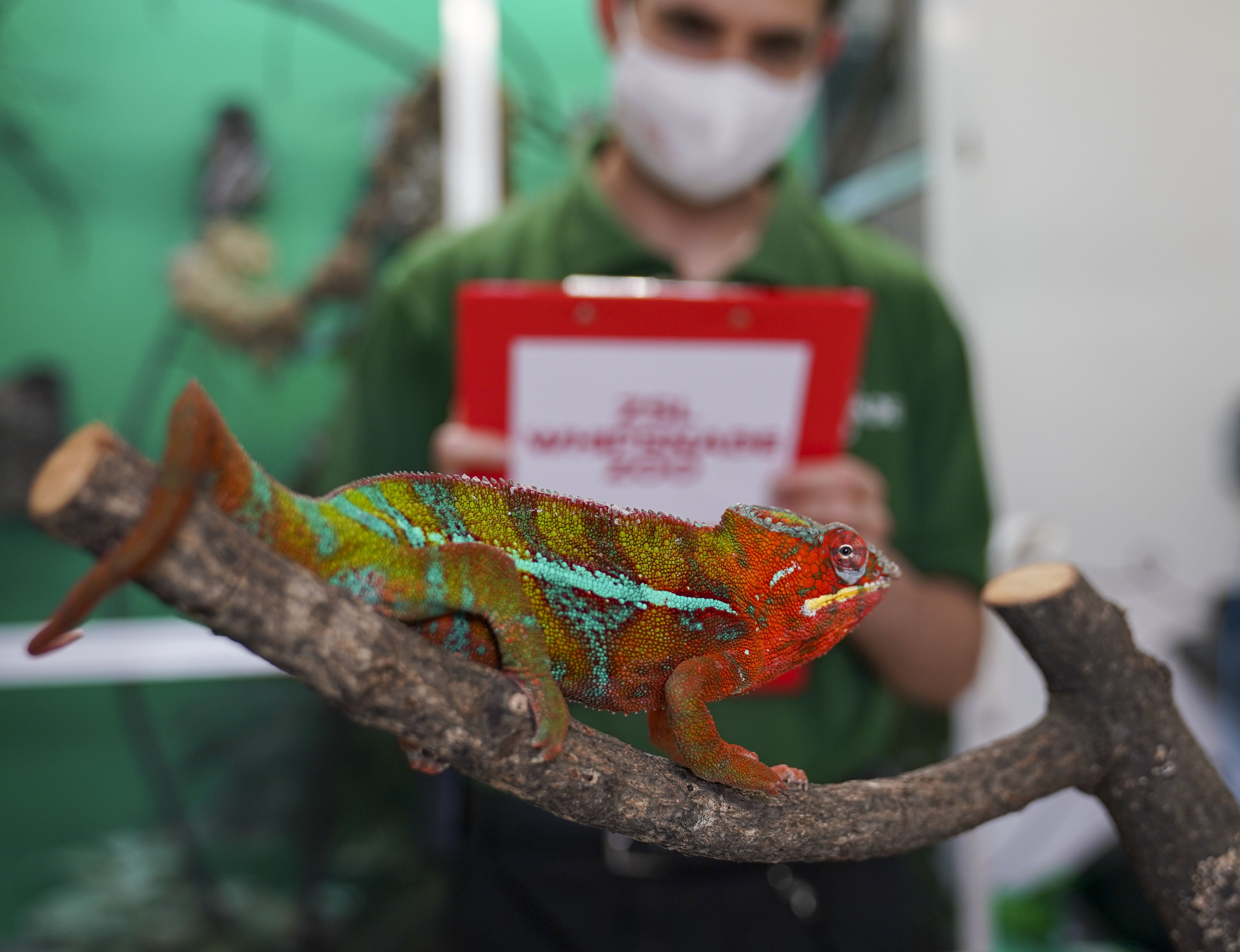Zoo fights to save species from extinction by cryogenically freezing genetic samples
Technique stores material from animals that are disappearing from Earth

Your support helps us to tell the story
From reproductive rights to climate change to Big Tech, The Independent is on the ground when the story is developing. Whether it's investigating the financials of Elon Musk's pro-Trump PAC or producing our latest documentary, 'The A Word', which shines a light on the American women fighting for reproductive rights, we know how important it is to parse out the facts from the messaging.
At such a critical moment in US history, we need reporters on the ground. Your donation allows us to keep sending journalists to speak to both sides of the story.
The Independent is trusted by Americans across the entire political spectrum. And unlike many other quality news outlets, we choose not to lock Americans out of our reporting and analysis with paywalls. We believe quality journalism should be available to everyone, paid for by those who can afford it.
Your support makes all the difference.A zoo in southwest England is aiming to save some of the world’s most endangered species from extinction by cryogenically freezing tissue and reproductive cell samples, with the aim of helping at-risk animals breed in the future.
Paignton Zoo in Devon has partnered with Nature’s SAFE, one of Europe’s first “living biobanks”, to process and store the endangered creatures’ samples in a living state at -196C.
Each sample is tissue that would otherwise be thrown away and is collected from animals that die or are neutered in zoos.
The technique specifically targets the genetic codes of animals that are disappearing from the planet, with Shropshire-based Nature’s SAFE holding material from more than 80 species.
One method sees the extraction of sperm cells post-castration of the animal, which then undergo specialised and species-specific processing to enable cryopreservation.
Researchers are also investigating techniques to collect mature egg cells from ovaries to allow female reproductive cell preservation.
The animals cryogenically preserved include the mouse deer, Colombian black spider monkey and the panther chameleon.
Nature’s SAFE is already working in collaboration with Chester Zoo and The Rhino Fertility Project at the University of Oxford, and is supported by the European Association of Zoos and Aquaria Biobank.
“The challenges we face in species conservation mean we have to be innovative and forward thinking”, said Dr Kirsten Pullen, chief science officer at Wild Planet Trust, a conservation charity which incorporates Paignton Zoo.
“While we continue our efforts in captive breeding and conservation initiatives, working with Nature’s SAFE gives us an exciting opportunity to develop another tool to achieve our goal of halting species decline.”
Dr Rhiannon Bolton, Nature’s SAFE co-founder and charity coordinator, said: “With so many animals at risk of extinction, collaboration to achieve a common goal is vital. This new partnership will enable us to save even more animals from extinction.”
Tullis Matson, another of Nature’s SAFE co-founders, told Sky News the technique could allow scientists to bring the samples back to life in “10, 20, 30, 1,000 years' time”.
“In theory, in years to come, we can turn that skin sample into a sperm and an egg, which is quite incredible,” he said.
“But the science is moving at such a rate, if we don't freeze it now, we've lost those species forever."
Join our commenting forum
Join thought-provoking conversations, follow other Independent readers and see their replies
Comments